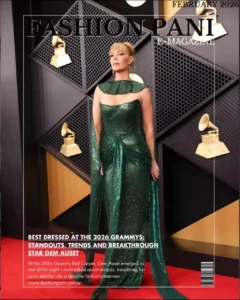
The collaboration between the University of Siena and MAGI Group exemplifies the intersection of academic excellence and industrial innovation. This partnership, co-coordinated by Professor Andrea Bernini of the Department of Biotechnology, Chemistry, and Pharmacy at the University of Siena, and Dr. Matteo Bertelli, industrial coordinator of MAGI Group and MAGISNAT, headquartered at the Atlanta Tech Park in Peachtree Corners, represents a significant model for fostering synergies between research institutions and industry.
This collaboration is part of the Ph.D. School in Biochemistry and Molecular Biology (BiBiM 2.0), a prestigious doctoral program dedicated to advancing research in cutting-edge scientific domains. Several researchers affiliated with MAGI Group’s Italian base in San Felice del Benaco are currently enrolled in this program. These scholars include Dr. Alessandro Macchia, Dr. Chiara Medori, and Dr. Cecilia Micheletti.
Additionally, the incoming cohort features Dr. Luca Ferrari, set to commence his studies next year, and Dr. Jürgen Kaftalli, further enhancing the program’s focus on mathematics. Notably, Dr. Kevin Donato, already a PhD graduate from the University of Milan and now representing MAGISNAT, contributed to the discussions and exchanges during the latest doctoral school meeting.

Scientific Focus: Presentations and Discussions
On 26th November, the Ph.D. School facilitated a day-long seminar that showcased the breadth of research conducted under this partnership. The event focused on applying systems biology approaches to personalized nutrition, with critical discussions on leveraging omics technologies and data science to address pressing challenges in health and prevention.
Dr. Chiara Medori: “Mutational Loading and Retinal Aging”
Dr. Medori’s presentation explored the concept of mutational loading, a novel framework for assessing the cumulative impact of genetic variations on retinal aging. Her research examines how these variations interact with retinal function, underscoring the importance of aligning genetic cumulative effects with age-related changes.
Dr. Cecilia Micheletti: “Multi-Omics Integration in Genetic Cardiopathies”
Dr. Micheletti introduced her doctoral research on multi-omics data integration to investigate patients with genetic cardiopathies. Her project addresses a critical gap in systems biology by combining genomic, transcriptomic, and metabolomic data to unravel complex disease mechanisms. This work highlights the potential of integrating diverse data types to create holistic patient profiles, offering significant implications for personalized nutrition and therapeutic approaches.

Dr. Alessandro Macchia: “Sports Performance and Nutrition Systems Biology”
Dr. Macchia’s work focuses on the intersection of sports science and systems biology. His project examines the role of personalized nutrition in optimizing athletic performance, using integrative data science techniques to predict metabolic responses and enhance training outcomes. His research emphasizes how tailored dietary interventions and personalized physical activity can improve performance, recovery, and overall health in athletes.
Dr. Jürgen Kaftalli: “Mathematical Modeling and Computational Programming in Bioinformatics”
Incoming researcher Dr. Kaftalli presented his expertise in mathematical modeling and computational programming for bioinformatics studies. His work focuses on developing advanced algorithms and predictive models to simulate biological systems, integrating diverse datasets for deeper insights into systems biology. His contributions are expected to enhance the robustness of bioinformatics tools used in personalized nutrition and disease modeling.

Dr. Luca Ferrari: “Polygenic Risk Scores in Personalized Nutrition and Sport”
Dr. Ferrari’s future research will focus on leveraging polygenic risk scores (PRS) to personalize dietary recommendations and sports interventions. By analyzing the cumulative effects of multiple genetic variants, PRS provides a quantitative measure of an individual’s predisposition to complex diseases such as diabetes, cardiovascular conditions, and obesity. His work aims to explore how PRS can guide personalized nutrition and physical activity plans, mitigating risks and promoting long-term health outcomes.
Cultural Enrichment in Siena
The day was not only intellectually stimulating but also culturally enriching. Participants had the opportunity to explore the historic city of Siena, renowned for its medieval charm and cultural heritage. A leisurely walk through Piazza del Campo, one of the most iconic squares in Italy, allowed the group to appreciate its architectural splendor and vibrant atmosphere.
The visit continued to the House of Saint Catherine of Siena, a revered site dedicated to one of Italy’s most significant historical and religious figures. The group captured a moment under the statue of Saint Catherine, symbolizing a union of historical reverence and modern academic pursuit. Lastly, the group admired the Rectorate of the University of Siena, a historic building reflecting the institution’s deep-rooted legacy and commitment to excellence.

Looking Ahead
The collaboration between the University of Siena and MAGI Group epitomizes the value of bridging academic knowledge with industrial application. This partnership not only facilitates cutting-edge research but also fosters professional development for emerging scholars, ensuring their work has a meaningful impact on society.
As the Ph.D. School in Biochemistry and Molecular Biology (BiBiM 2.0) continues to evolve, its integration with industry partners like MAGI Group stands as a testament to the transformative potential of collaborative research. By combining academic rigor with industrial pragmatism, this initiative paves the way for innovations that will shape the future of biotechnology, chemistry, and molecular biology.
In the words of Professor Andrea Bernini: “This collaboration is more than a partnership; it is a dynamic ecosystem where academia and industry converge to drive scientific progress.” Dr. Matteo Bertelli echoed this sentiment, highlighting the critical role such collaborations play in translating research into real-world applications.
This initiative sets a benchmark for future collaborations, showcasing how academia and industry can together sculpt a brighter, more innovative future.






